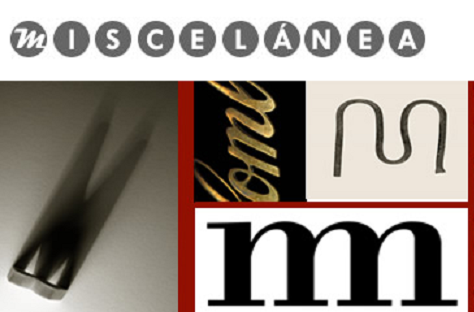The Human Moment: Self, Other and Suspension in John Banville's Ghosts
DOI:
https://doi.org/10.26754/ojs_misc/mj.200510120Palabras clave:
El yo, El otro, Suspensión, Ética, ImaginaciónResumen
El protagonista de Fantasmas es un hombre aislado del mundo que le rodea, y de su propio sentido del yo, por la culpa del crimen de asesinato, pero también está imbuido de una fascinación por la pintura -una pintura en particular- que parece ofrecer ocasionalmente una liberación de esta condición. Al examinar cómo estos dos elementos se entrelazan en la novela, esta lectura sugiere que la ética y la imaginación pueden ser inseparables, y que ambas pueden ser intrínsecas, tal vez incluso anteriores, al tipo de yo que el protagonista anhela aquí, un yo que pertenezca íntegramente al mundo y sienta la realidad de la alteridad. Se argumenta que el contenido de la novela se refleja en la forma de una manera que permite la representación de este tema. Explorando las formas en que la pintura frente a la narrativa puede considerarse análoga a la imaginación frente al tiempo, se argumenta que la tensión entre ambas se resuelve mediante la idea de anticipación, de suspensión, y que esto sirve tanto de base para el arte como de puente provisional entre la realidad en la que vive el protagonista y la que anhela.
Descargas
Referencias
BANVILLE, John. 1993. Ghosts. London: Picador.
—. (1973) 1998. Birchwood. London: Picador.
—. (1976) 1990. Doctor Copernicus. London: Minerva.
—. 1981. Kepler. London: Secker and Warburg.
—. (1982) 1984. The Newton Letter. London: Panther.
—. (1989) 1990. The Book of Evidence. London: Minerva.
BECKETT, Samuel. (1965) 1999. Proust and Three Dialogues with Georges Duthuit. London: Calder.
BORGES, Jorge Luis. 1999. Selected Non-Fictions. Ed. Eliot Weinberger. Trans. Esther Allen, Suzanne Jill Levine and Eliot Weinberger. New York: Viking.
BRYSON, Norman. 1981. Word and Image: French Painting of the Ancient Regime. Cambridge: Cambridge U.P.
BUBER, Martin. (1958) 2003. I and Thou. Trans. Ronald Gregor Smith. London: Clark.
D’HOKER, Elke. 2002. “Portrait of the Other as a Woman with Gloves: Ethical Perspectives in John Banville’s The Book of Evidence”. Critique: Studies in Contemporary Fiction 44.1: 23-37.
ELIOT, T. S. 1944. Four Quartets. London: Faber and Faber.
JACKSON, Tony, E. 1997. “Science, Art and the Shipwreck of Knowledge: The Novels of John Banville”. Contemporary Literature 38.8: 510-33.
KELLY, William. 1987. “John Banville’s Great Expectations”. Rev. of Mefisto. The Irish Literary Supplement 6.1: 12.
LYOTARD, Jean-Francois. 1988. Peregrinations: Law, Form, Event. New York: Columbia U.P.
MURDOCH, Iris. 1999. Existentialists and Mystics: Writings on Philosophy and Literature. Ed. Peter Conradi. New York: Penguin.
NABOKOV, Vladimir. 1982. Lectures on Literature. San Diego: Harcourt.
O’BRIEN, Flann. (1939) 2001. At Swim-Two-Birds. Harmondsworth: Penguin.
PRIEST, Ann-Marie. 2000. “‘In the Mystic Circle’: The Space of the Unspeakable in Henry James’s The Sacred Fount”. Style 34.3: 421-443.
READINGS, Bill. 1991. Introducing Lyotard: Art and Politics. London: Routledge.
SHATTUCK, Roger. 1999. Candor & Perversion: Literature, Education, and the Arts. New York: Norton.
SMOLEY, Richard. 2002. Inner Christianity: A Guide to the Esoteric Tradition. Boston: Shambala.
STEVENS, Wallace. 1953. Selected Poems. London: Faber and Faber.
—. 1959. Opus Posthumous. London: Faber and Faber.
WEIL, Simone. (1952) 2002. Gravity and Grace. Trans. Emma Crawford and Mario von der Ruhr. London: Routledge.
YEATS, W. B. (1952) 1982. Mythologies. London: Macmillan.
Descargas
Publicado
Número
Sección
Licencia

Esta obra está bajo una licencia internacional Creative Commons Atribución-NoComercial 4.0.


